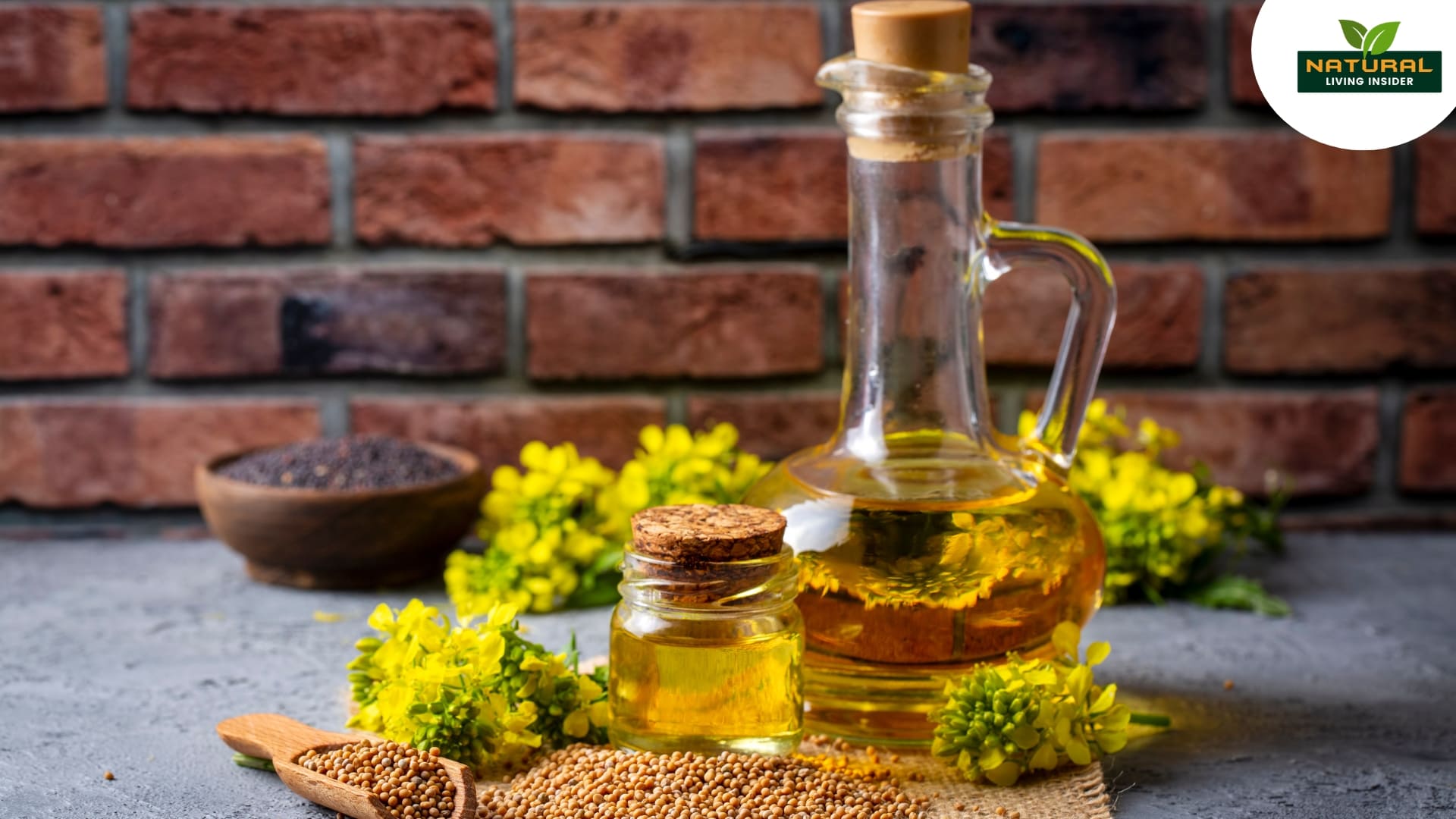
Mustard is a plant in the Brassica genus, part of the Brassicaceae family. It serves as an important agricultural crop, providing both seeds and leaves used in various cuisines worldwide. Here’s a detailed look at mustard, focusing on its botanical characteristics, culinary uses, nutritional benefits, and medicinal properties.
Table of Contents
Botanical Overview
- Scientific Name: Brassica species, including Brassica juncea (brown mustard), Brassica nigra (black mustard), and Sinapis alba (yellow or white mustard).
- Family: Brassicaceae
- Origin: Mustard likely originated in the Mediterranean region. People now cultivate different varieties around the world.
Types of Mustard Seeds
- Yellow (or White) Mustard Seeds (Sinapis alba):
- Flavor: Milder and slightly tangy.
- Culinary Uses: Cooks commonly use yellow mustard to make American-style mustard and condiments.
- Brown Mustard Seeds (Brassica juncea):
- Flavor: Pungent, spicier, and more intense.
- Culinary Uses: Cooks widely use brown mustard in Indian, Middle Eastern, and Asian cuisines, especially in pickles, sauces, and curries.
- Black Mustard Seeds (Brassica nigra):
- Flavor: Very pungent and sharp.
- Culinary Uses: Indian cooks commonly use black mustard in tempering spices.
Mustard in Culinary Uses
- Whole Seeds: People use mustard seeds whole in pickles, soups, and stews. Cooks often fry them in oil to release their flavor.
- Ground Mustard: Grinding mustard seeds turns them into mustard powder, which serves as a key ingredient in mustard sauce, salad dressings, and marinades.
- Mustard Oil: People extract mustard oil from mustard seeds. Cooks commonly use it in South Asian cuisine. Mustard oil has a pungent flavor and contains monounsaturated fatty acids and omega-3 fatty acids.
- Mustard Greens: People eat the mustard plant’s leaves. Cooks prepare mustard greens in dishes, particularly in Southern U.S. cuisine and in many Asian and African dishes.
Nutritional Profile of Mustard
- Vitamins: Mustard provides vitamins A, C, and K, with mustard greens being particularly rich in vitamin K.
- Minerals: Mustard contains calcium, magnesium, and iron.
- Antioxidants: Mustard provides antioxidants like carotenoids, polyphenols, and flavonoids, which protect the body from oxidative stress.
- Dietary Fiber: Mustard seeds, especially when ground into powder, provide a decent amount of dietary fiber.
- Low in Calories: Mustard seeds have low calories but are packed with flavor and nutrition, making them a healthy addition to many diets.
Health Benefits of Mustard
- Digestive Health:
- People traditionally use mustard to aid digestion by stimulating bile production and promoting appetite.
- The fiber in mustard seeds helps with constipation and improves overall digestive health.
- Anti-inflammatory Properties:
- Mustard seeds contain compounds like selenium and magnesium, which have anti-inflammatory effects. These compounds may help reduce symptoms of arthritis and other inflammatory conditions.
- Boosting Metabolism:
- Mustard has thermogenic properties, meaning it can increase the body’s metabolic rate and potentially aid weight loss by boosting calorie burn.
- Skin Health:
- People often use mustard oil in skincare for its moisturizing and antimicrobial properties. It can keep the skin soft, prevent dryness, and protect against infections.
- Pain Relief:
- Mustard seeds contain compounds that people use in traditional remedies for muscle pain, joint pain, and headaches. People sometimes apply mustard paste or oil topically to alleviate discomfort.
Mustard as a Medicinal Plant
- Mustard Seeds: People have used mustard seeds for centuries in traditional medicine. They help with respiratory issues, such as coughing and asthma, and people also use them as a poultice for chest congestion.
- Mustard Oil: In Ayurvedic medicine, people use mustard oil for its warming properties. They sometimes apply it to the scalp to promote hair growth or to the skin to treat conditions like eczema and psoriasis.
- Mustard Paste: People use mustard paste as a warming agent in traditional remedies for muscle pain and to stimulate circulation. They apply mustard paste to sore muscles or use it in baths to soothe the body.
Mustard in Traditional Medicine
- For Cough: A mixture of mustard powder, water, and honey sometimes serves as a remedy for a cough or sore throat.
- For Joint Pain: People often recommend mustard oil massages to alleviate joint pain, inflammation, and stiffness.
- For Detoxification: People believe mustard has detoxifying properties and sometimes use it in cleanses to support liver health and detoxification.
Mustard’s Potential Side Effects
- Allergic Reactions: Some people may be allergic to mustard, especially when it's raw. This allergy can lead to skin rashes, swelling, or digestive issues.
- Gastric Irritation: Mustard can irritate the gastrointestinal tract in sensitive individuals, especially when consumed in large quantities.
- Interaction with Medications: Mustard oil contains erucic acid, which can have adverse effects if consumed in large amounts. People should exercise caution when using mustard oil for cooking, particularly in high quantities.
Mustard is a powerful and versatile plant with a rich history in both culinary and medicinal applications. Whether people use its seeds, oil, or leaves, mustard provides a range of health benefits, from aiding digestion to reducing inflammation. Its unique flavor and nutritional profile make it a valuable addition to many dishes, while its medicinal uses offer relief from a variety of ailments.


